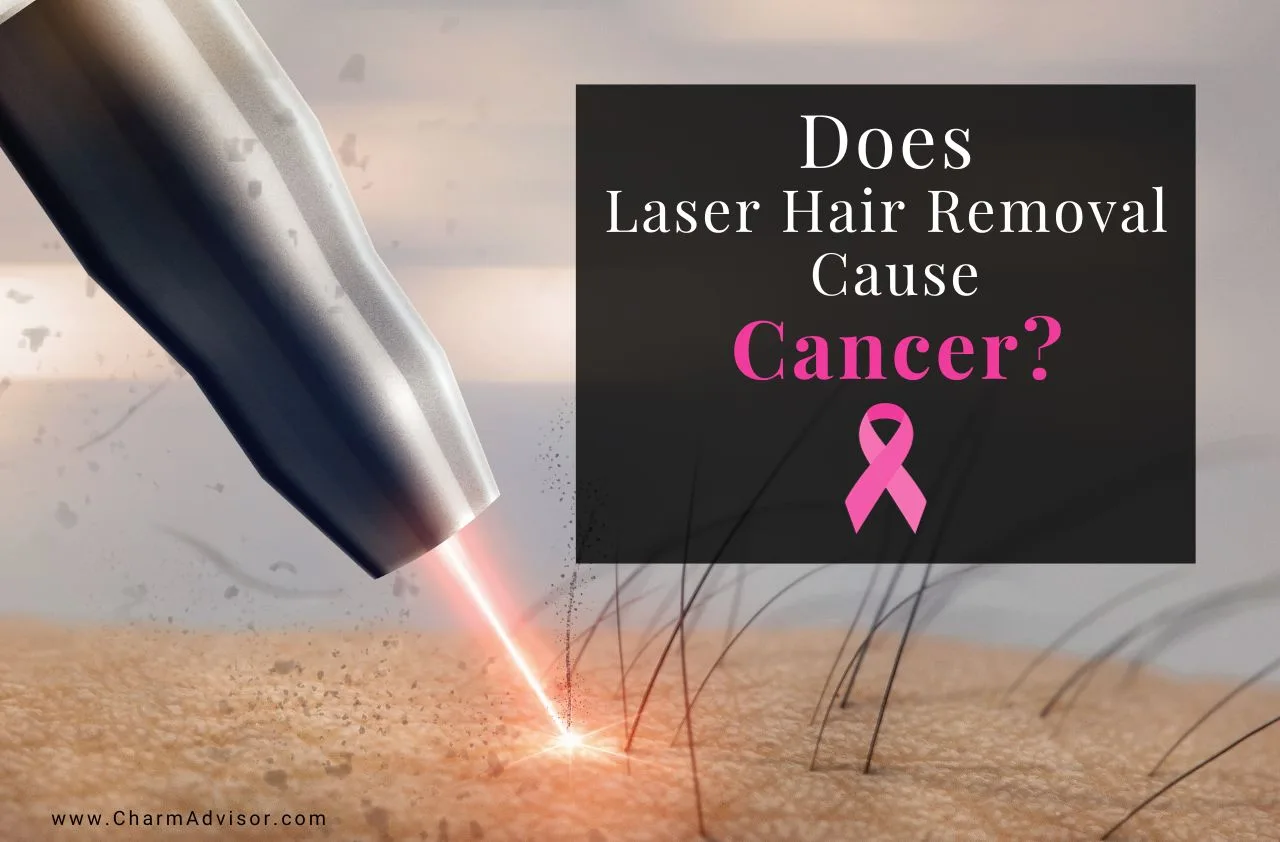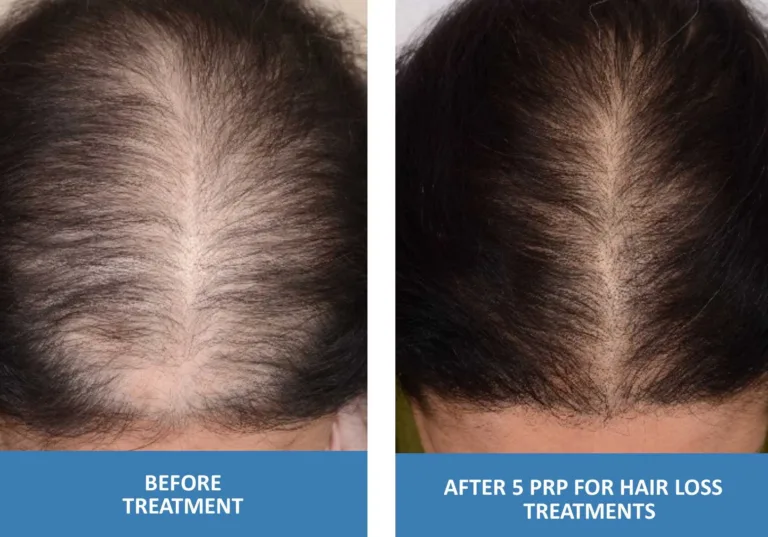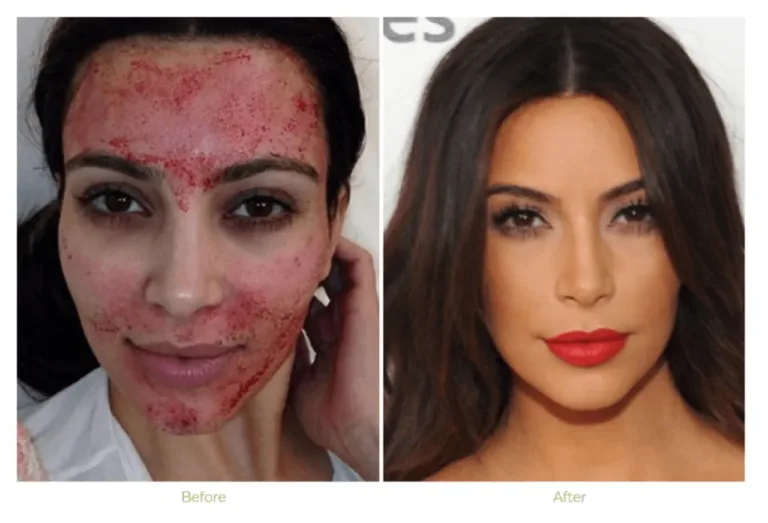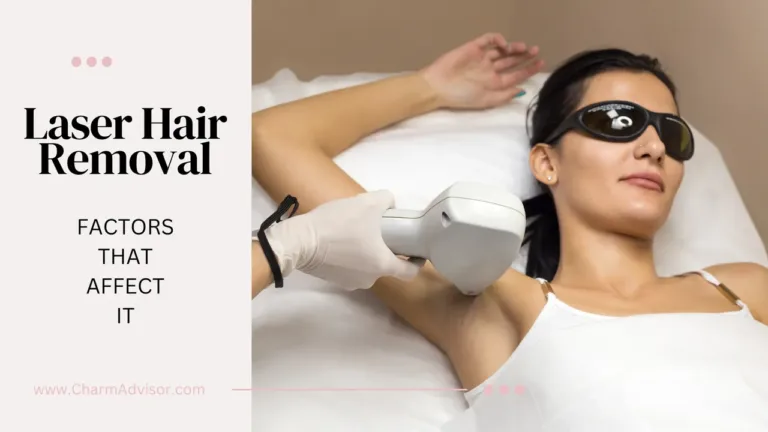
Table of Contents
If you are tired of shaving, waxing, or plucking unwanted hair, you might have considered laser hair removal as a permanent solution.
Laser hair removal is a popular cosmetic procedure that uses a concentrated beam of light to destroy hair follicles and prevent hair growth. However, you might have also heard some scary rumors about laser hair removal causing cancer.
Is there any truth to this myth? Or is it just a baseless fear that prevents people from enjoying the benefits of laser hair removal? In this article, we will explore the facts and myths about laser hair removal and cancer, and answer some of the most common questions people have about this procedure.
What is Laser Hair Removal?
Laser hair removal is a procedure that uses a device that emits a high-intensity light of a specific wavelength to target the pigment in hair follicles. The light is absorbed by the pigment and converted into heat, which damages the hair follicle and inhibits its ability to produce hair.
The procedure can be done on any part of the body, such as the face, legs, arms, underarms, bikini line, chest, back, etc. The procedure is usually done in multiple sessions, depending on the size and density of the area to be treated, the type and color of the hair and skin, and the desired results.
The procedure is generally safe and effective, but it is not a guarantee of permanent hair removal. Some hair may grow back after a period of time, and some people may need touch-up treatments to maintain the results.
Understanding the Radiation in Laser Hair Removal
One of the main concerns people have about laser hair removal is the radiation involved in the procedure. Radiation is a term that refers to the emission and transmission of energy in the form of waves or particles.
Radiation can be classified into two types: ionizing and non-ionizing.
Ionizing radiation is the type that has enough energy to knock off electrons from atoms and molecules, creating ions. Ionizing radiation can cause damage to the DNA and cells and increase the risk of cancer. Examples of ionizing radiation are X-rays, gamma rays, and ultraviolet rays.
Non-ionizing radiation is the type that does not have enough energy to ionize atoms and molecules but can still cause them to vibrate or rotate. Non-ionizing radiation does not cause direct damage to the DNA and cells but may cause some heating effects. Examples of non-ionizing radiation are radio waves, microwaves, infrared rays, and visible light.
Laser hair removal uses non-ionizing radiation, specifically visible light, to target the hair follicles. The light used in laser hair removal is not the same as the sunlight that contains ultraviolet rays, which are known to cause skin cancer.
The light used in laser hair removal is of a specific wavelength that matches the pigment in the hair follicles and does not affect the surrounding skin or tissues. The light does not penetrate deeper than the skin and does not reach the internal organs or the bloodstream.
Therefore, laser hair removal does not expose you to harmful radiation that can cause cancer.
Does Laser Hair Removal Cause Cancer?
The short answer is no.
There is no scientific evidence to suggest that laser hair removal causes cancer. According to the American Academy of Dermatology, laser hair removal is a safe and effective procedure that has been used for more than two decades and has not been linked to any long-term health risks, including cancer.
The Food and Drug Administration (FDA) has also approved laser hair removal devices as safe for cosmetic use, and has not found any evidence of carcinogenic effects from these devices. Furthermore, several studies have been conducted to investigate the potential effects of laser hair removal on the skin and the DNA, and none of them have found any signs of cancer or genetic mutations.
For example, a study published in the Journal of the American Academy of Dermatology in 2013 titled “Lack of evidence for DNA damage caused by laser hair removal” by Alster TS, Tanzi EL, and Lupton JR. examined the skin biopsies of 28 patients who underwent laser hair removal and found no evidence of DNA damage or skin cancer. You can find the abstract and full text of the study here.
Another study published in the Lasers in Medical Science in 2014 titled “Evaluation of the systemic effects of laser hair removal with the analysis of serum levels of hormones and blood counts” by Karslioglu Y, Ersoy-Evans S, and Aslan G analyzed the blood samples of 30 patients who underwent laser hair removal and found no evidence of DNA damage or systemic effects. You can find the abstract and full text of the study here.
Therefore, based on the current scientific knowledge, laser hair removal does not cause cancer, and is a safe procedure when done by a qualified professional.
Common Side Effects of Laser Hair Removal
While laser hair removal does not cause cancer, it may cause some temporary side effects that are usually mild and resolve within a few days. Some of the common side effects of laser hair removal are:
Skin irritation
The heat from the laser may cause some redness, swelling, itching, or discomfort in the treated area. This is normal and expected, and usually subsides within a few hours or days.
Applying ice packs, aloe vera gel, or hydrocortisone cream may help to soothe the skin and reduce inflammation.
Pigmentation changes
The laser may cause some changes in the color of the skin, either making it darker (hyperpigmentation) or lighter (hypopigmentation). This is more likely to occur in people with darker or tanned skin, or those who are exposed to the sun before or after the treatment. This is usually temporary and fades over time, but in some cases, it may be permanent.
To prevent or minimize pigmentation changes, it is important to avoid sun exposure and use sunscreen before and after the treatment.
Rare Side Effects of Laser Hair Removal
In rare cases, laser hair removal may cause some serious side effects that require medical attention. Some of the rare side effects of laser hair removal are:
Scarring
The laser may cause some scarring or changes in the texture of the skin, especially if the skin is prone to keloids or hypertrophic scars. This may result in raised, thick, or discolored patches of skin that may be permanent. To prevent or reduce scarring, it is important to follow the aftercare instructions, and avoid picking or scratching the treated area.
Eye injury
The laser may cause some damage to the eyes, if they are not properly protected during the treatment. This may result in symptoms such as blurred vision, pain, or blindness. To prevent or treat eye injury, it is important to wear protective goggles or glasses during the treatment, and seek immediate medical attention if any eye problems occur.

Here is a table that compares the two types of side effects of laser hair removal:
| Common Side Effects | Rare Side Effects |
|---|---|
| Skin irritation: redness, swelling, itching, or discomfort in the treated area. Usually mild and temporary. | Scarring: raised, thick, or discolored patches of skin that may be permanent. More likely in people with keloid or hypertrophic scars. |
| Pigmentation changes: darker or lighter skin color in the treated area. Usually temporary and fades over time. More likely in people with darker or tanned skin, or sun exposure. | Eye injury: blurred vision, pain, or blindness in the eyes. May occur if the eyes are not properly protected during the treatment. |
Safety Measures and Best Practices for Laser Hair Removal
Laser hair removal is a safe and effective procedure when done by a qualified professional who follows the proper protocols and standards. However, there are some safety measures and best practices that you should follow to ensure a successful and comfortable experience. Some of the safety measures and best practices for laser hair removal are:
- Consult a dermatologist: Before undergoing laser hair removal, you should consult a dermatologist who can evaluate your skin type, hair type, medical history, and expectations. The dermatologist can also advise you on the best type of laser, the number of sessions, the cost, and the possible outcomes and risks of the procedure.
- Choose a certified professional: You should choose a certified professional who has the training, experience, and equipment to perform laser hair removal safely and effectively. You should avoid unlicensed or inexperienced providers who may use substandard or outdated devices, or who may not follow the proper hygiene and safety measures. You can check the credentials and reviews of the provider online, or ask for referrals from friends or family who have had laser hair removal.
- Follow the pre-treatment instructions: You should follow the pre-treatment instructions given by the provider, which may include avoiding sun exposure, tanning, waxing, plucking, or bleaching the hair for at least four weeks before the treatment. You should also shave the area to be treated the day before or the day of the treatment, and avoid using any products that may irritate the skin, such as perfumes, deodorants, or creams.
- Follow the post-treatment instructions: You should follow the post-treatment instructions given by the provider, which may include applying ice packs, aloe vera gel, or hydrocortisone cream to the treated area to reduce inflammation and discomfort. You should also avoid sun exposure, tanning, swimming, or sweating for at least two weeks after the treatment, and use sunscreen with SPF 30 or higher. You should also avoid waxing, plucking, or bleaching the hair in between the sessions, and only shave if necessary. You should also contact the provider if you experience any signs of infection, scarring, or eye injury.
- Be patient and realistic: You should be patient and realistic about the results of laser hair removal, as it may take several sessions to achieve the desired outcome. You should also understand that laser hair removal may not work for everyone, and that some hair may grow back after a period of time, requiring touch-up treatments. You should also be aware of the possible side effects and risks of laser hair removal, and weigh them against the benefits and costs of the procedure.
Laser hair removal is a safe and effective way to get rid of unwanted hair permanently, but it is not without its myths and misconceptions. One of the most common myths is that laser hair removal causes cancer, which is not true.
Laser hair removal uses non-ionizing radiation, which does not damage the DNA or cells, and does not increase the risk of cancer.
Laser hair removal has been used for more than two decades and has not been linked to any long-term health risks, including cancer. However, laser hair removal may cause some temporary or rare side effects, such as skin irritation, pigmentation changes, infection, scarring, or eye injury.
Therefore, it is important to consult a dermatologist, choose a certified professional, and follow the pre- and post-treatment instructions to ensure a safe and comfortable experience.
FAQs:
Is laser hair removal linked to cancer?
No, laser hair removal is not linked to cancer. Laser hair removal uses non-ionizing radiation, which does not damage the DNA or cells, and does not increase the risk of cancer. There is no scientific evidence to suggest that laser hair removal causes cancer.
Are there health risks to laser hair removal?
Laser hair removal is generally safe and effective, but it may cause some temporary or rare side effects, such as skin irritation, pigmentation changes, infection, scarring, or eye injury. These side effects can be prevented or treated by following the pre- and post-treatment instructions and consulting a qualified professional.
Is Brazilian laser safe?
Brazilian laser is a type of laser hair removal that removes all or most of the hair in the pubic area. Brazilian laser is safe when done by a certified professional who follows the proper hygiene and safety measures. However, Brazilian laser may cause more discomfort and sensitivity than other areas and may increase the risk of infection or ingrown hairs. Therefore, it is important to take extra care and follow the aftercare instructions.
Who should not get laser hair removal?
Laser hair removal is not suitable for everyone, and some people may have contraindications or limitations for the procedure.Some of the factors that may make laser hair removal unsuitable are:
– Pregnancy or breastfeeding
– History of skin cancer or precancerous lesions
– History of keloids or hypertrophic scars
– Active skin infection or inflammation
– Use of certain medications or supplements that may increase photosensitivity
– Skin conditions such as psoriasis, eczema, or vitiligo
– Tattoos or permanent makeup in the treatment area
– Very light or very dark hair or skin
If you have any of these factors, you should consult a dermatologist before undergoing laser hair removal.






